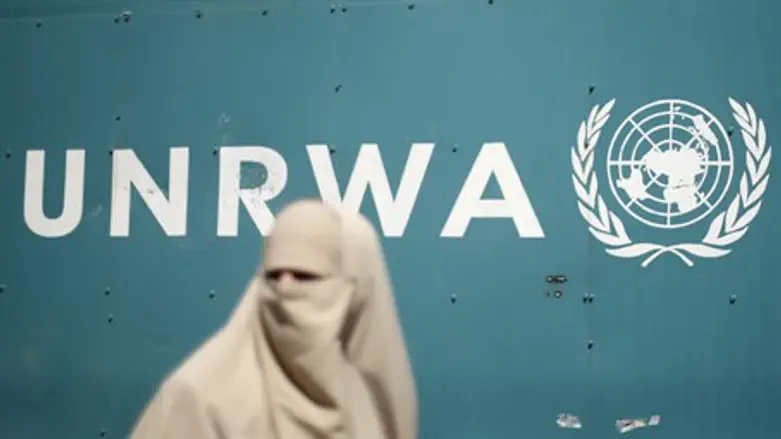
UNRWA spokesman Chris Gunness made sure to release this announcement at the end of last week: "Several media outlets have reported that UNRWA intends to close its headquarters in Gaza. These reports are false. UNRWA HQ Gaza is not closing. The Agency affirms categorically that there are no plans to do so and staff are not being let go."
Puzzlingly, the panicky announcement seemed to have been circulated even more widely than the alleged reports of the UNRWA closure. In any event, Gunness took the opportunity to state that "UNRWA is fully committed to maintaining its presence in the Gaza Strip, which … is vital to serving and protecting the Palestine refugees, who make up two thirds of the population of Gaza."
He did not explain how it happened that this number is so high. After all, UNRWA was tasked upon its forming in 1949, inter alia, with helping the refugees "achieve their full human development potential, pending a just and lasting solution to their plight." Nothing, however, has been done by UNRWA or by the Arab countries that brought about the refugee problem in 1948-9, to help them reach a "just and lasting solution."
In fact, the UN General Assembly passed a resolution in 1985 rejecting all efforts to require UNRWA to help Arab refugees engage in steps towards resettlement and rehabilitation.
In this connection, the late Joan Peters, author of "From Time Immemorial," said in 2014 (quoted by researcher David Bedein):
"UNRWA has been perpetrating fraud against the Jewish nation and against the world since they became the only 'refugee' organ solely dedicated to one group of the world's refugees. The Arab refugees who really ran or were displaced during Israel's War of Independence, were a small group when compared to the world's hundreds of millions displaced during wars and strife. The Arabs were also a much smaller actual number than the Jewish Arab-born refugees forced to flee from Arab countries. But the Arabs were counted over and over, going back and forth from the refugee camps. As American congressmen have attested, fraud was committed constantly, aided by the almost totally-Arab staff in the UNRWA employ."
Gunness also announces that "UNRWA is funded almost entirely by voluntary contributions" and that "financial support has been outpaced by the growth in needs." He laments that the UNRWA Programme Budget "operates with a large shortfall, projected for 2016 to stand at US$ 81 million." At the same time, UNRWA's own website shows that in 2015, the top 20 donor nations contributed nearly $1.1 billion, with another $73.8 million contributed by the top 20 non-government donors. The top three donor nations were the U.S. ($380 million), the EU (over $136 million), and the United Kingdom (nearly $100 million). The only Arab countries in the top 20 were Saudi Arabia (#4), Kuwait (#8), and the United Arab Emirates (#12).
Meanwhile, in areas controlled by the Palestinian Authority in Judea and Samaria, grassroots committees of the refugee camps have decided to escalate protests measures against UNRWA. This, in response to changes made by UNRWA to the food distribution system in the camps. It was announced that the committees would close UNRWA social affairs offices and directors' offices and block movement of UNRWA cars.
In April, the UN agency decided to halt its food distribution program in the camps and replace it with a cash card system. This led to concern among UNRWA's employees, who said the move jeopardized 300 to 400 jobs of workers at the organization's distribution centers.